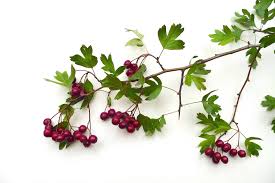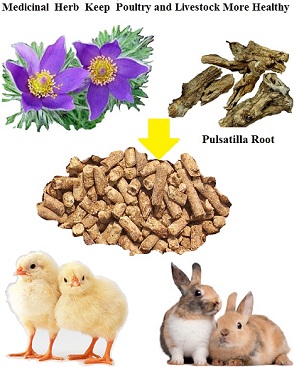- Plant-Based Protein
- Natural Plant Flavours
- Food and Dietary Supplement Ingredients
- Fruit Juice Powder
- Animal Nutrition Ingredients
- Water Soluble Ingredients
- Cosmetic Ingredients
- Unveiling the Therapeutic Potential of Rabdosia Rubescens: A Comprehensive Review
- What are the medicinal properties of Rabdosia Rubescens?
- Nutritional value of Orange Juice Powder compared to fresh orange juice.
- Processing Conditions and Nutritional Value of Orange Juice Powder
- Exploring the Versatility of Herbal Extracts in Food Flavors

What are the health benefits of hawthorn leaf?
Welcome to our blog! Today, we are diving into the world of hawthorn leaf and uncovering its incredible health benefits. Whether you're a fan of herbal remedies or simply curious about natural alternatives, hawthorn leaf is definitely worth exploring.


Black pepper Extract,piperine,phytogenic Feed addtive,improve grow performance of poultry
Black peper Extract piperine can be taken as a phytogenic feed additive in poultry and livestock diet. Among its chemical-biological activities, piperine exhibits antimicrobial, anti-inflammatory and antioxidant properties. It also increases the bioavailability of certain drugs in the organism. Black Pepper extract has good effect on broiler's grow performance and carcass quality. Besides being a natural compound that does not produce detected residues in the animal or in their derived products.
Background
The practice of using antimicrobial feed additives, such as antibiotics and chemotherapy drugs, as growth promoters was banned in livestock and poultry diets in 2006 by the European Union. Therefore, a worldwide search for equally effective alternatives, without negative impacts on animal welfare and consumer health, was initiated. Herbal extracts, spices, and some of their components (phytogenic additives) are possible natural alternatives to the use of antibiotics as growth promoters in broiler diets. Phytogenic feed additives are plant‑derived products used in animal feeding to improve the performance of agricultural livestock and may satisfy the increasing concerns of consumers, since they prove to be safe and effective. Phytogenics may also minimize the serious environmental problem of bacterial resistance caused by the use of antibiotics as growth promoter additives. Phytogenics can improve the consumption and conversion of food, and the digestibility and weight gain of broiler chickens.
Simple production process in our factory: After the black pepper seeds are collected, raw material will be processed by solvent extraction, separation and purification, filtration, concentration, purification,drying and other steps to form the final products. We may also design a prouction process based on your special requirements.
|
Black Pepper Extract Piperine |
||
|
CAS No. |
84929-41-9 |
|
|
FEMA |
2846 |
|
|
EINECS |
284-524-7 |
|
|
Appearance |
Powder |
|
|
Color |
Brown |
|
|
Partical size |
Normally pass through 80mesh |
|
|
Pack size |
25 kg per paper drum |
|
|
Purity of active compunds |
5-10%Piperine |
By HPLC |
|
For pricing or more information, please call 86 29 88444632 or send an email to Sales@nutraherbsource.com |
||
General Information
Common Names of raw material: black pepper, piperine, long pepper.
Latin Names: Piper nigrum Linn. Or Piper longum Linn.
Description

Piper nigum is a woody climbing vine growing to 9 m (30 ft) or more in length. The grayish stem may reach 1.2 cm (0.5 in) diameter. Numerous rootlets grow from swollen stem nodes. Leaves dark green above and pale green beneath, glossy, ovate and acutely tipped, and range in size from 13–25cm (5–10 in) in length. Elongated, slender spikes or catkins (1.6–2cm [4–5 in] in length) bear minute, white flowers. The flower spikes, each producing from 50–60 single-seeded dark red berries, approximately 5millimeters (0.20 in) in diameter, always appear on stems opposite the leaves.
Bioactive chemical compounds of the black pepper
Almost all spices have aromatic features, regular grindings of spices lead to loss of important aroma compounds and accordingly resulted to considerable loss of aroma and flavor components and deterioration of quality. The dried black pepper fruit is rich in bioactive phytochemical compounds. Piperine is one of the most abundant chemical alkaloids in the black pepper.
Piperine (1-piperoyl-piperidine) is a major alkaloid component of black (Piper nigrum Linn.) and long (Piper longum Linn.) pepper, and is responsible for their pungent and biting taste. These pepper species have been used as seasoning in cookery and as an ingredient in alternative medicine for the treatment of several illnesses, such as bronchitis and asthma. Among its chemical-biological activities, piperine exhibits antimicrobial, anti-inflammatory and antioxidant properties. It also increases the bioavailability of certain drugs in the organism and acts as a chemopreventive factor against pro-carcinogens activated by cytochrome P-450.

Pharmacokinetics of Black pepper extract (piperine)
The active principles of phytogenic additives are absorbed in the intestine by enterocytes and are quickly metabolized by the body. Piperine induces alterations in membrane dynamics and permeation characteristics, as well as the synthesis of proteins associated with cytoskeletal function, resulting in an increase in the small intestine absorptive surface. The administration of piperine by gavage (170 mg kg-1 of body weight) or intraperitoneally (85 mg kg-1 of body weight) to male albino rats was efficiently absorbed (about 97%), and its passage through the intestine indicated that the highest concentration in stomach and small intestine occurred at approximately 6 hours. Only traces (less than 0.15%) were detected in the serum, kidney, and spleen from 30 min to 24 hours. The rapid metabolism and the short life of piperine indicate a low risk of accumulation in the tissue. Liver histopathological changes were observed in a dose-dependent manner, indicating that 1.12 mg kg-1 of piperine, with oral route of administration, is nontoxic for broiler chickens.
Advantage of black pepper extract as a natural feed additive
Besides being a natural compound that does not produce detected residues in the animal or in their derived products, piperine is easily isolated in great amounts and has shown interesting biological effects in studies developed in mammals.
Black peper Extract piperine can be taken as a phytogenic additive in chicken broiler diet.
Black Pepper extract (piperine) taken as a natural feed additive has good effect on broiler's grow performance and carcass quality.
According to Safa MA El Tazi,et. al, The effect of feeding broiler chicks on diets containing different levels of black pepper as natural feed additive on productive performance, carcass characteristics and economical efficiency were studied. A total of one hundred and sixty, one-day old, unsexed (Hubbard) broiler chicks were randomly divided into four experimental groups. Each group was further subdivided into five replicates at the rate of eight chicks per pen in a complete randomized design. The chicks were fed on two basal diets (starter and finisher). The black pepper (Piper nigrum L.) was added to the basal diets at levels (0.0, 0.5, 0.75 and 1%) resulting in four (A,B,C and D) formulae respectively ,with group A serving as control. The experimental diets were fed for 6-weeks duration. Health of the stock and performance parameters was recorded. Dressing, edible giblet (liver, heart and gizzard), commercial cuts percentages (breast, drumstick and thigh) and economical evaluation were calculated. The result indicated group supplemented with (1%) black pepper had significantly (P<0.05) heaviest values for body weight gain, feed intake, dressing, best feed conversion ratio, and commercial cuts percentages (breast, drumstick and thigh). The birds fed on the control group produced significantly (P<0.05) highest abdominal fat percentage. The mortality rate and the percentages of edible giblets (liver, heart and gizzard) were not affected significantly (P>0.05) by the addition of the black pepper on broiler diets. Birds fed on the highest level of black pepper (1%) yielded the highest net profit as compared to other experimental groups.
Black pepper (Piper nigrum) may enchance the performance of poultries fed diets
According to Galib A M Al-Kassie,et. al, Add with black pepper (Piper nigrum) in ration may enhance the performance of broilers fed diets. A total of 250 (Rose 308) day old chicks were used in this study. Five levels of black pepper at the rate of 0.00%, 0.25%, 0.50%, 0.75% and 1% were incorporated into the basal diet of broilers for six weeks. The Results revealed that the inclusion of black pepper at the levels of 0.50%, 0.75% and 1% in the diets improved body weight gain, feed intake and conversion ratio. At the same time the black pepper of 0.50 %, 0.75% and 1% depressed the cholesterol, Hb, RBC and H/L ratio concentration. It was concluded that the use of black pepper as feed additive at 0.50%, 0.75% and 1% enhanced the overall performance of broiler chicks.
Black Pepper extract has be listed as a kind of feed addtives in European union Register of Feed Additives pursuant to Regulation(EC) No 1831/2003
- Prev:Rabdosia rubescens, Antibacterial,Antivirus,Antibiotic alternative,poultry,livestock,influenza
- Next:Fenugreek Extract,phytogenic Feed addtive,improve growth performance,feed conversion for poultry











